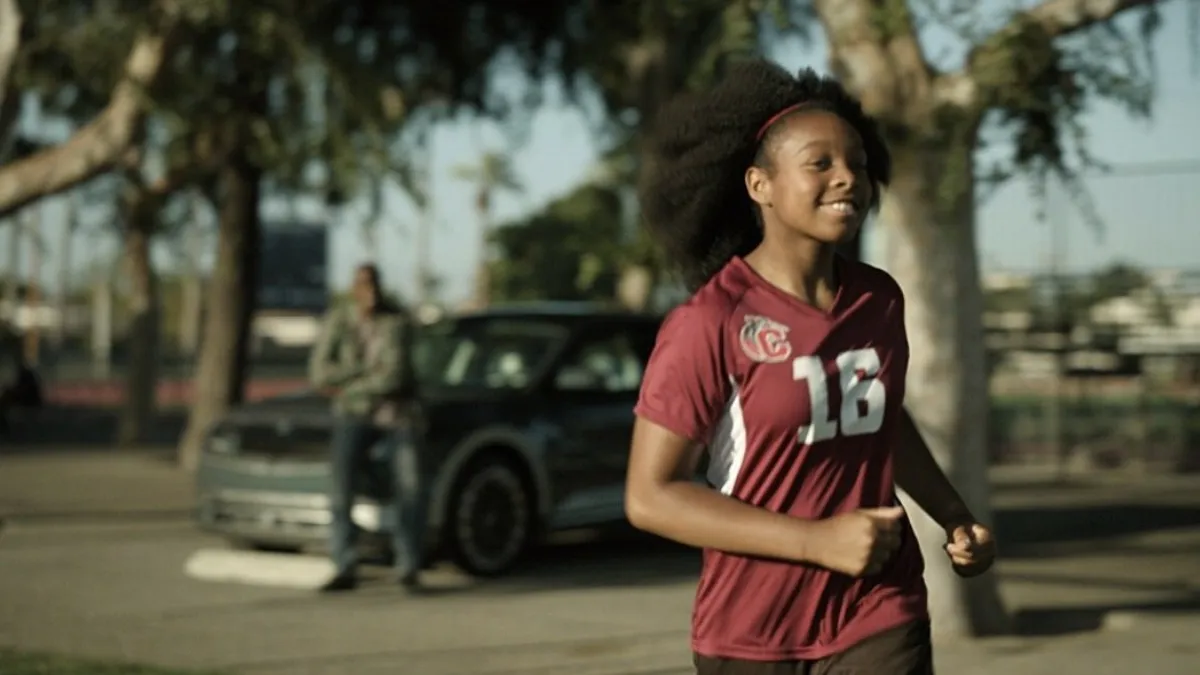The Olympics have a history of inspiring advertising replete with stories of triumph and athletes performing at their peak to reach the global stage. For the 2024 Summer Games in Paris, which kick off Friday, Hyundai is taking a different route with a campaign capturing the moments when children question whether the pressure of sports is worth it and the response they receive from their parents.
The effort, titled “It’s OK,” marks a change of pace not only from what’s usually on display on the Olympics advertising stage, but also for Hyundai as a brand. The automaker frequently markets around sports but often leans into humor, as demonstrated in a celeb-heavy Super Bowl spot from 2020 that played on heavy Boston accents to highlight parking assist features. “It’s OK” carries a more somber tone that is broken by moments of human connection as parents encourage their kids to take a break and pursue activities less taxing on their mental health.
“Never give up on finding what you love,” reads the closing message. “There’s joy in every journey.”
The campaign, created with Innocean USA, promotes the Tucson, IONIQ 5, Santa Fe and Palisade SUV models, though they keep a low profile. The marketing team was expressly instructed not to push a sales message around the Olympics, according to Hyundai Motor America CMO Angela Zepeda.
“While the cars are in it, they’re definitely taking a little bit of a back seat,” said Zepeda in an interview. “This is definitely telling more about our brand ethos first and telling an emotional story.”
Creative will appear as 60- and 30-second commercials airing during the Summer Games broadcasts, with a focus on the USA Women’s soccer matches (Hyundai is active in soccer as a global FIFA sponsor). Tailoring the message to the programming, one ad closes with a girl deciding to switch from gymnastics to soccer as her preferred sport, providing an uplifting coda. Digital and social content running on TikTok, Instagram, Facebook and YouTube rounds out the media plan, which was handled by agency partner Canvas.
“We’ve been wanting to do more with women’s sports. Women are a very big audience we want to talk more to,” said Zepeda.
Striking the right tone
Hyundai’s Olympics play is part of the company’s goal of sharing more of its “heart and soul,” said Jason Sperling, chief creative officer of Innocean USA. The concept was built off of the idea that many difficult heart-to-heart discussions happen as parents drop off and pick up their kids from sports practice. “It’s OK” is an extension of Hyundai’s “There’s Joy in Every Journey” campaign that positions the brand around joyous occasions.
“There is a little joy in this, in that it resolves into a happy moment because you get to find that thing you love to do, but sometimes life isn't so perfectly laid out,” said Zepeda regarding the mood the ads aim to capture. “It was more about how people feel when they watch the Olympics. Audiences get so engaged and they really feel the emotion of the games.”
Additionally, Hyundai is rolling out a “It’s Not a Sport” push on social that spotlights more niche sports like surfing, skateboarding and breakdancing.
Hyundai’s campaign stands in stark contrast to those of other Olympic sponsors. Nike recently unveiled its highly anticipated Summer Games ads, which dig into the ruthless drive it takes to win. Commercials narrated with relish by Willem Dafoe list typically negative qualities that are nevertheless shared by many sporting greats, including an obsession with power, an inability to be satisfied and a lack of care for others’ feelings.
The response to Olympics advertising could provide important insights to advertisers as they try to navigate a tricky second half that will include a contentious presidential election in the U.S. further dividing the public. Hyundai plans to extend aspects of “It’s OK” throughout the summer and into the fall.
“Consumer sentiment is definitely low,” said Zepeda. “The country is probably needing a little boost. I think the games, in general, are probably a highlight for a lot of people.”















